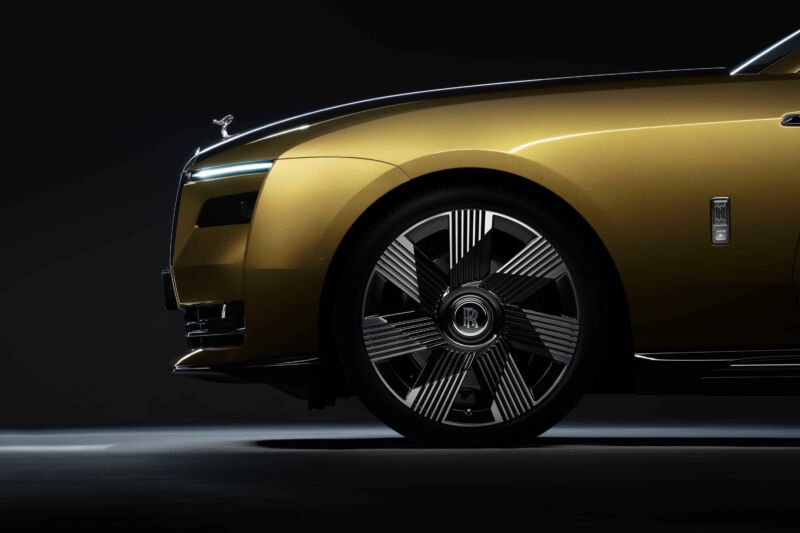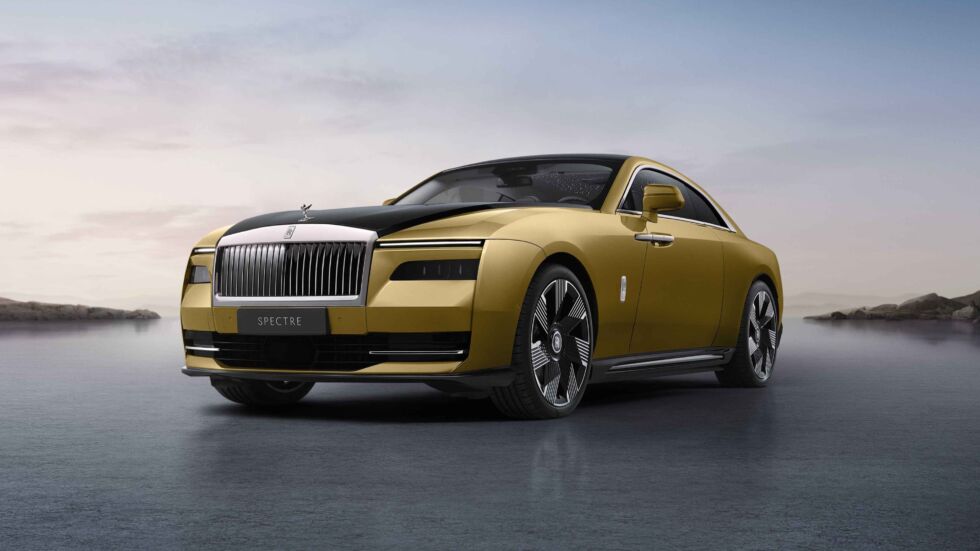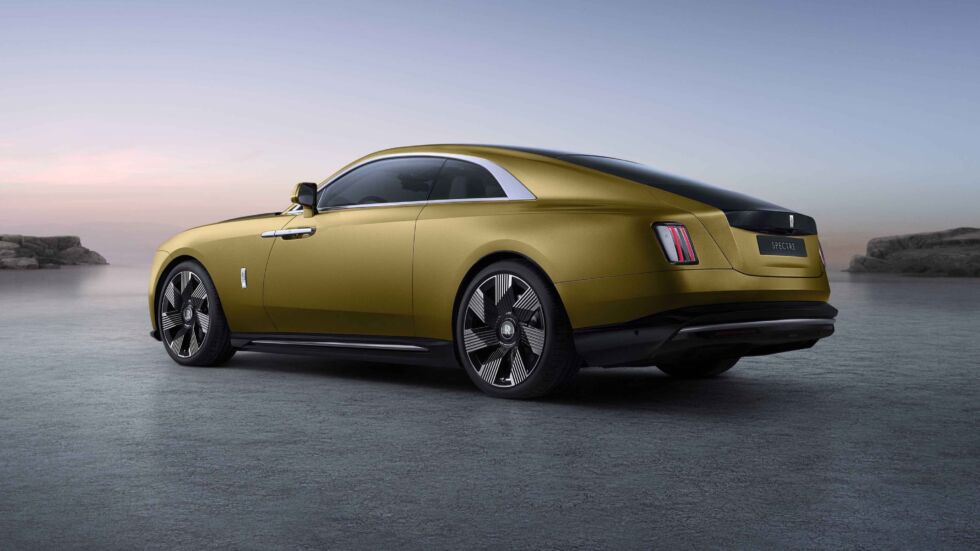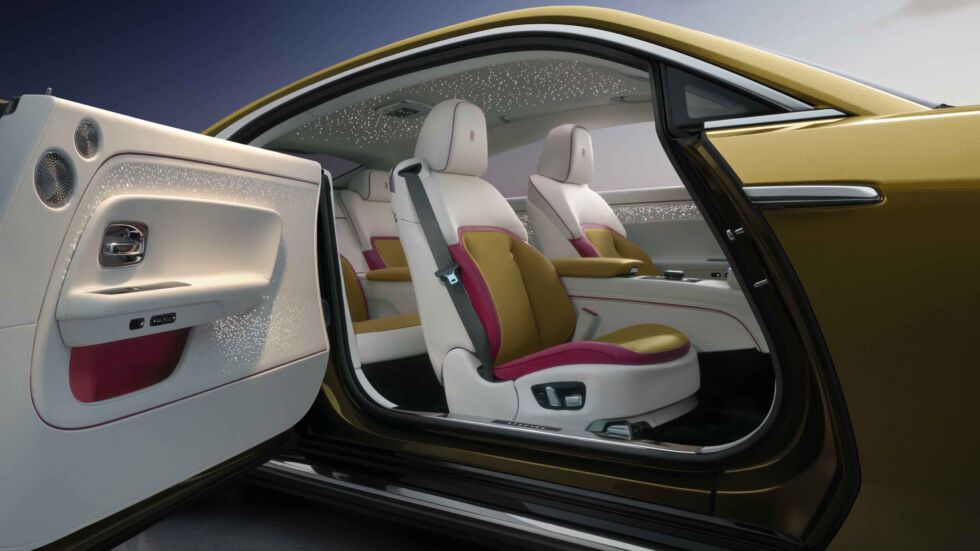
Drive a modern Rolls-Royce and it’s hard to escape the air of opulence. Deep shag lambswool carpets. A rear seat that hides its occupants from prying eyes. A headlining with thousands of LED stars that twinkle at night. But it’s also hard to avoid thinking that even with a powerful 6.75 L V12 under the hood, there’s a better alternative.
Rolls-Royce thinks so, too. Which is why on Tuesday, it debuted the Spectre, a new electric, fixed-head coupe that will reach its first well-heeled buyers in late 2023. It’s the first battery-electric vehicle from the marque, but not the last—its entire lineup will be EV-only by 2030.
Now, to spare the anger of the traditionalists, consider this quote: “The electric car is perfectly noiseless and clean. There is no smell or vibration. They should become very useful when fixed charging stations can be arranged.” No, not a post from any one of the numerous Ars comment threads about EVs, but Charles Stewart Rolls, one of the two eponymous founders of the company, speaking in 1900.

Rolls-Royce still feels that way 121 years later; when Ars spoke to Ghost Chief Engineer Jonathan Simm in 2021, he told me that “it’s very simple, because electrification is perfect for our brand values. As you say, it’s silent, it’s instant torque, fairly often our cars are used at lower speeds—it fits perfectly.”
The Spectre has been designed as a successor to the Phantom Coupé and will be priced between the $348,500 Cullinan SUV and the $460,000 Phantom sedan. The shape is immediately recognizable as a Rolls-Royce and only a Rolls-Royce, with a big pantheon grille at the front topped by the Spirit of Ecstasy, although both grille and sculpture have been aero-optimized for the Spectre.
Expect a large automobile—at 215 inches (5,453 mm) long and 82 inches (2,080 mm) wide, it has a larger footprint than a Cadillac Escalade. Unsurprisingly, it will weigh more than an Escalade, too, with a curb weight of 6,559 lbs (2,975 kg). It could have been worse; Rolls-Royce now has a new aluminum spaceframe architecture that’s extremely stiff but lighter than a conventional steel monocoque chassis.

The battery pack lives between the axles, but Rolls-Royce is staying coy on powertrain specifications for now other than to say the Spectre will pack 577 hp (430 kW) and 664 lb-ft (900 Nm), with an EPA-estimated range of 260 miles (418 km) on 23-inch wheels and a 0-60 mph time of 4.4 seconds (0-100 km/h in 4.5 seconds). While the range might seem low to some, the vast majority of Rolls-Royces spend their time driving in cities.
The company is a little more forthcoming about the Spectre’s “planar” suspension, which can decouple its front and rear anti-roll bars, which allows each wheel to react independently to things like potholes. So if one wheel hits a bump or a hole, that isn’t translated into a side-to-side rocking motion inside the car. When the car detects a corner is coming up—Rolls-Royce powertrains have been location-aware for some years now—it reconnects the antiroll bars and stiffens the dampers to maintain the magic carpet ride.
Otherwise, the Spectre looks like it hews closely to Rolls-Royce’s tried-and-trusted formula of low-volume, handcrafted luxury interiors. And now you can even have starlight doors to go with the starlight roof—this adds an extra 4,796 stars to the door cards, although since this is a Rolls-Royce, its bespoke service will probably make any kind of interior you want… for the right price.

https://arstechnica.com/?p=1890533

